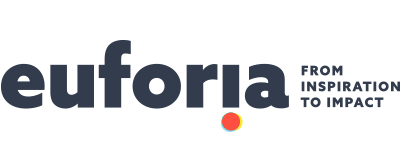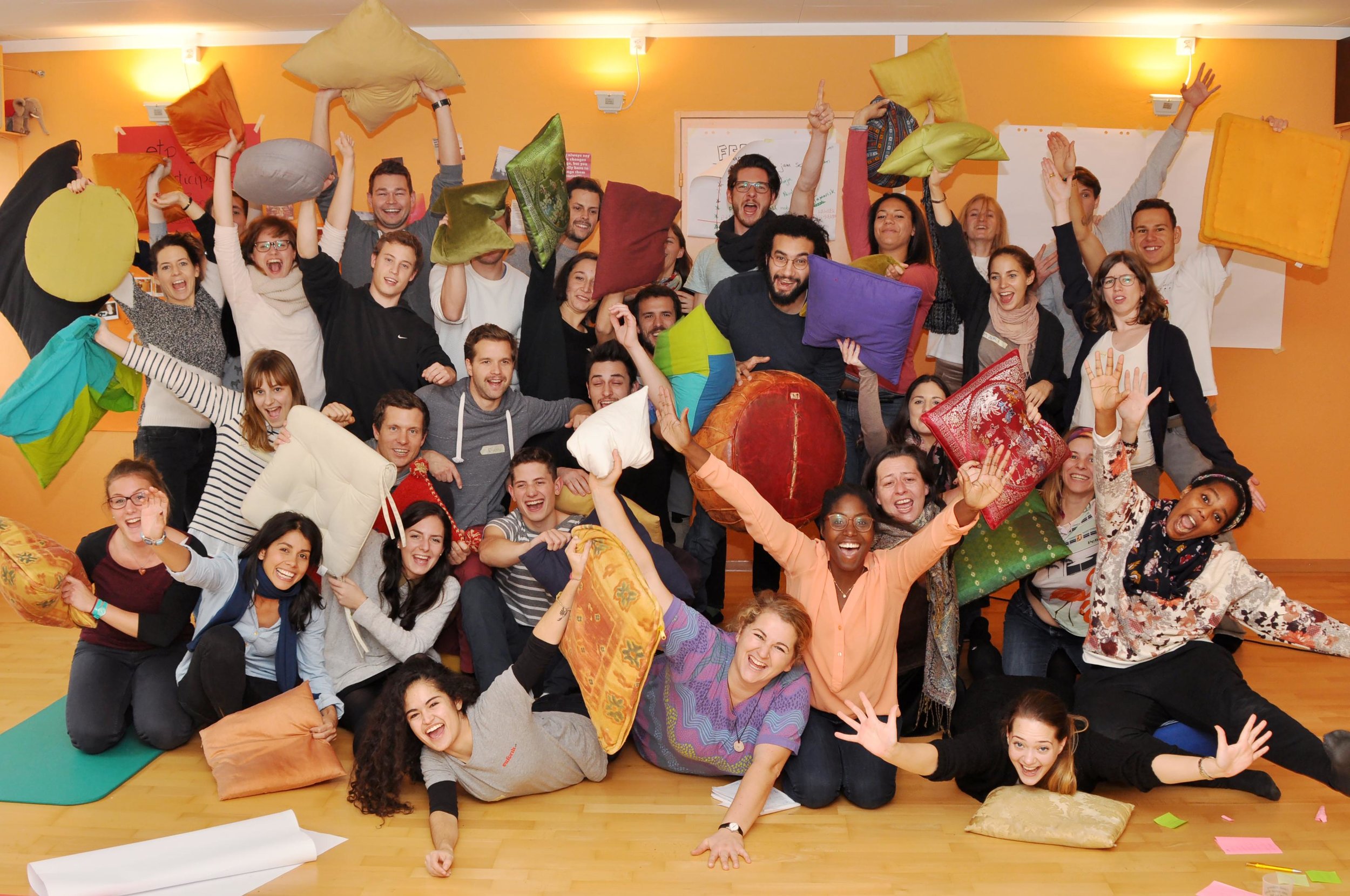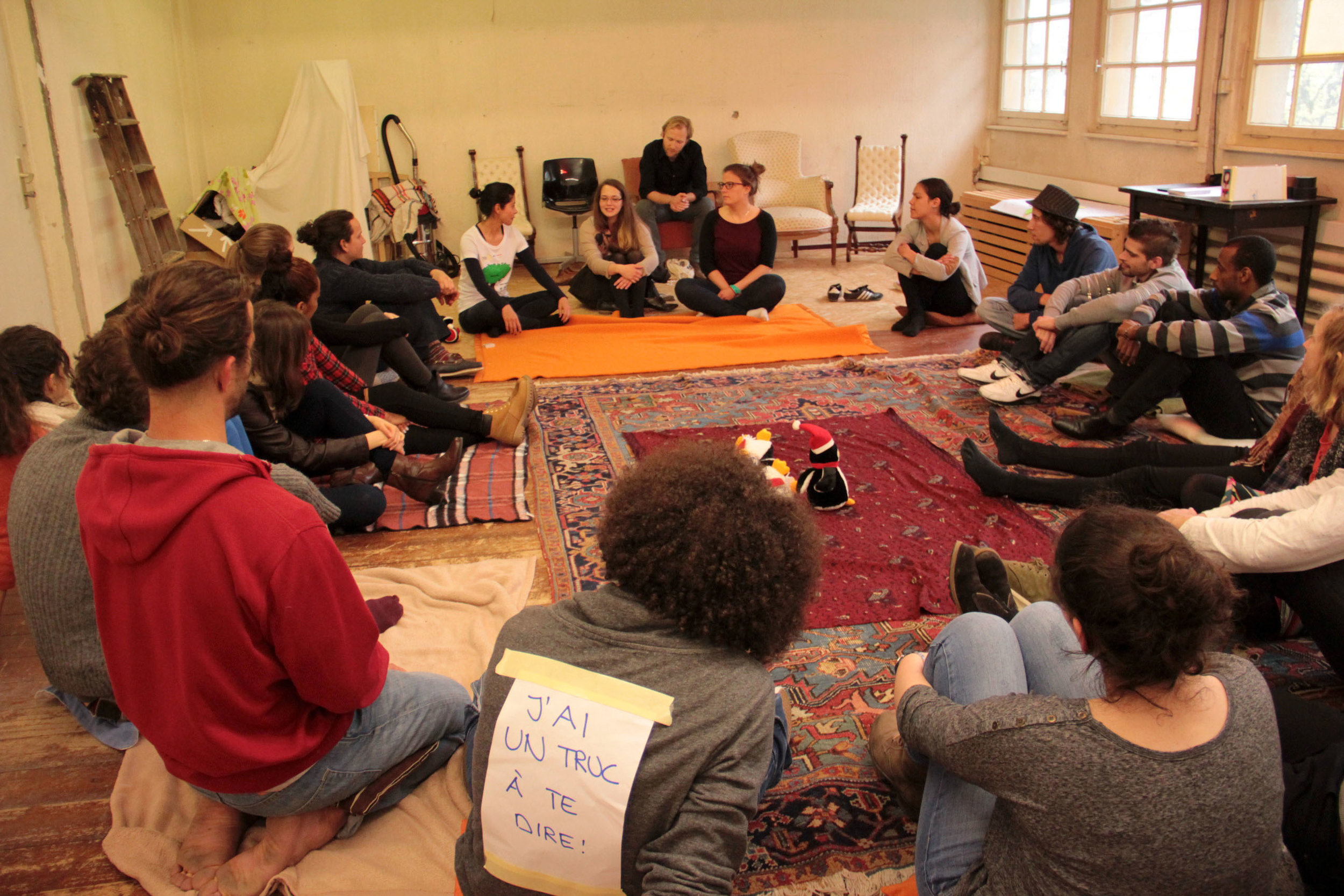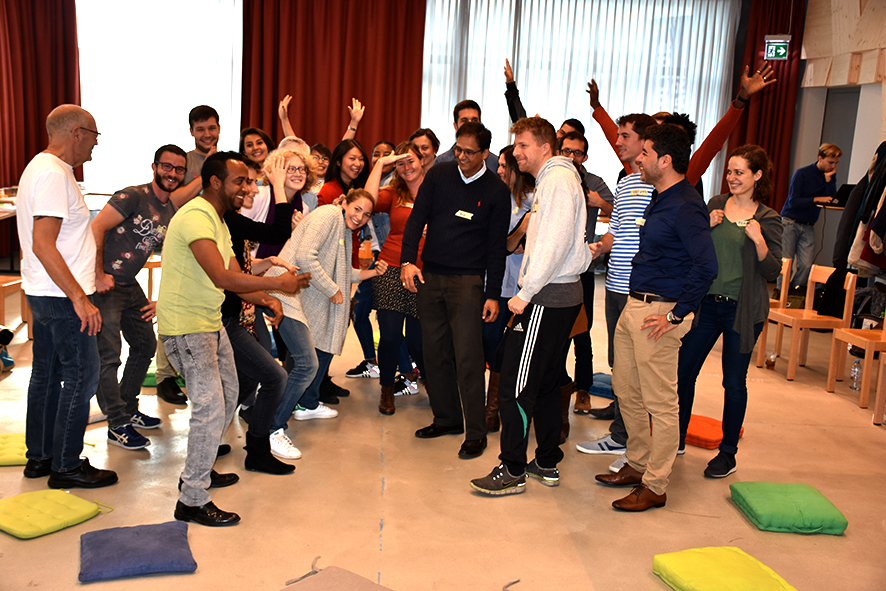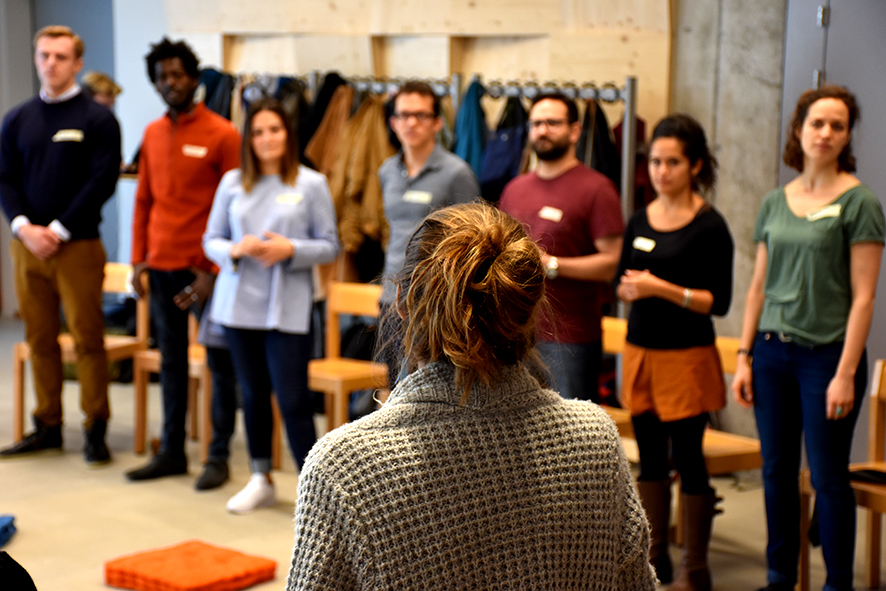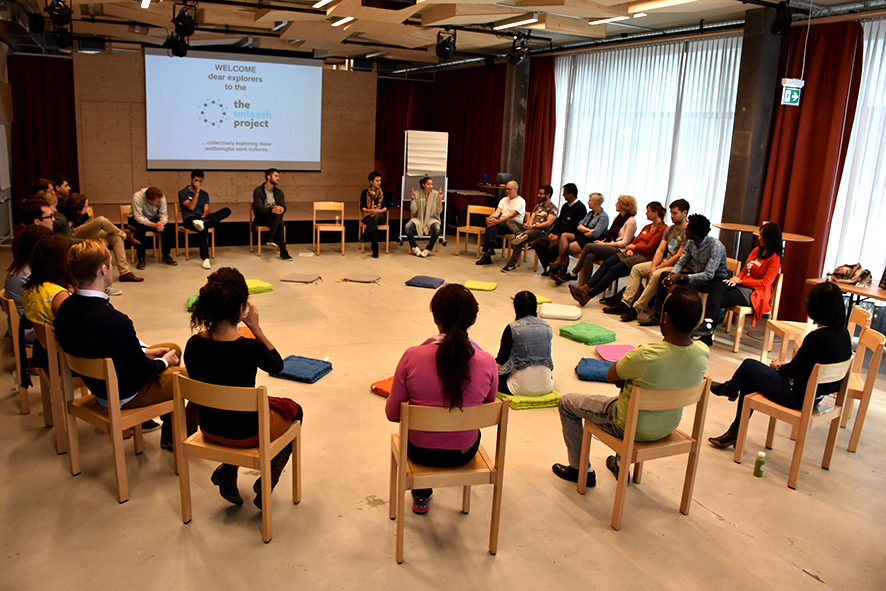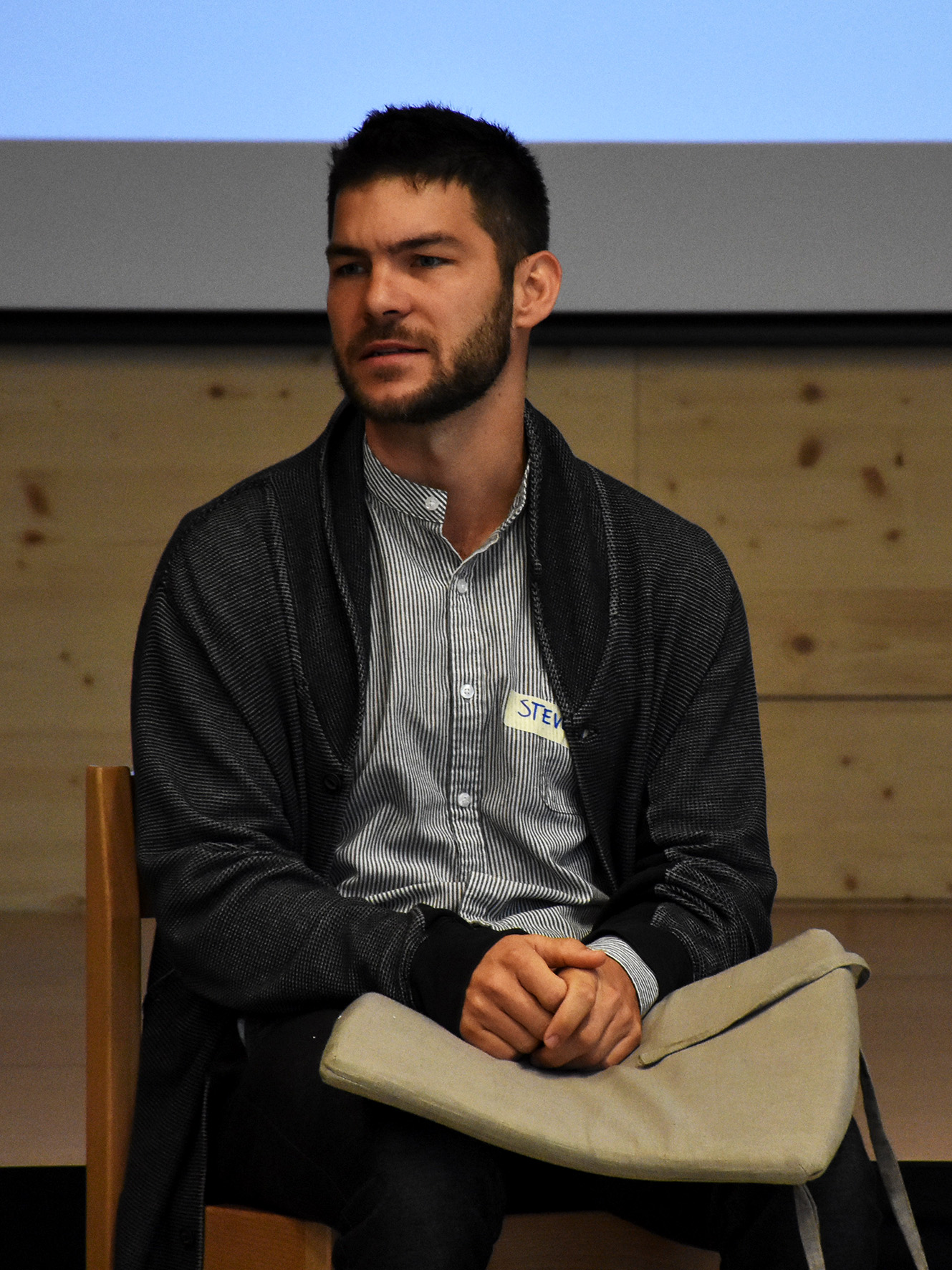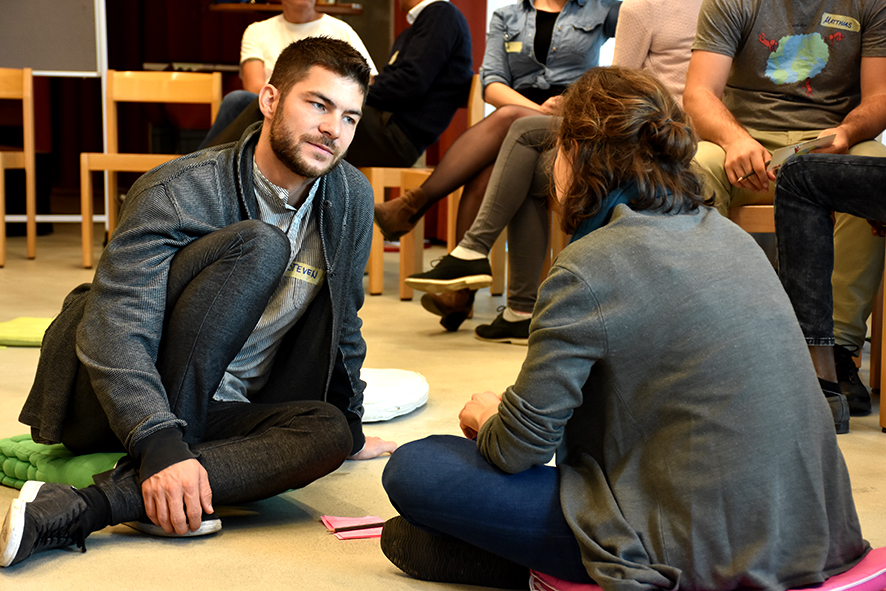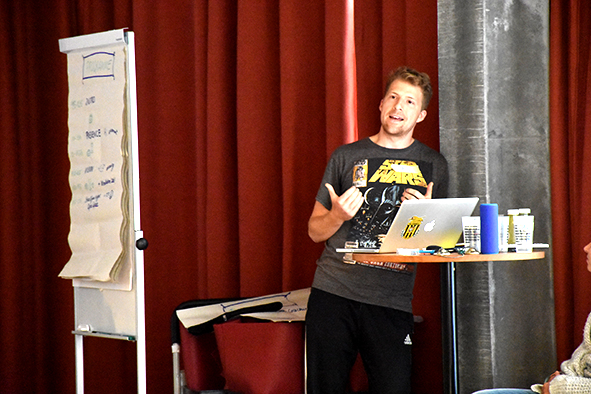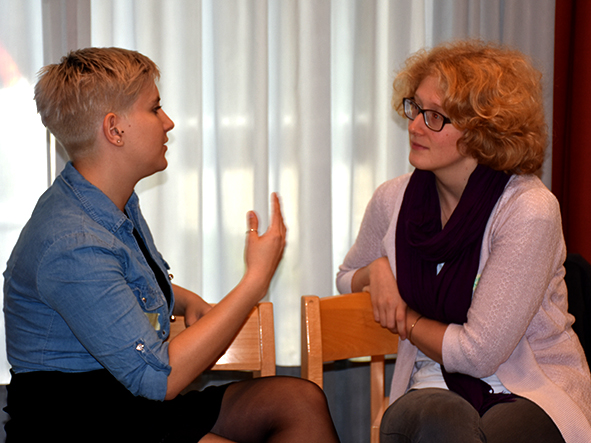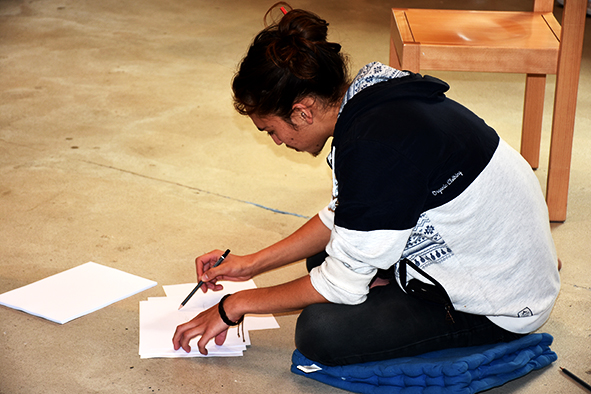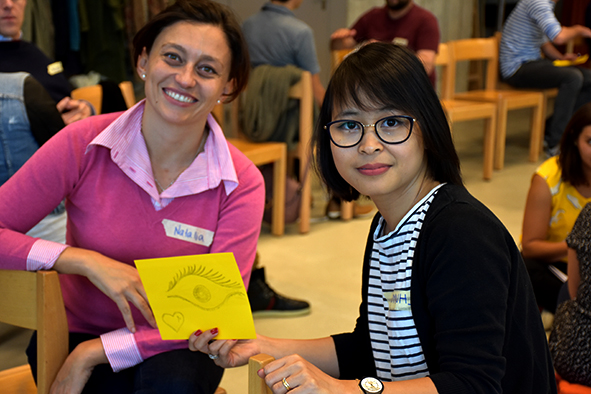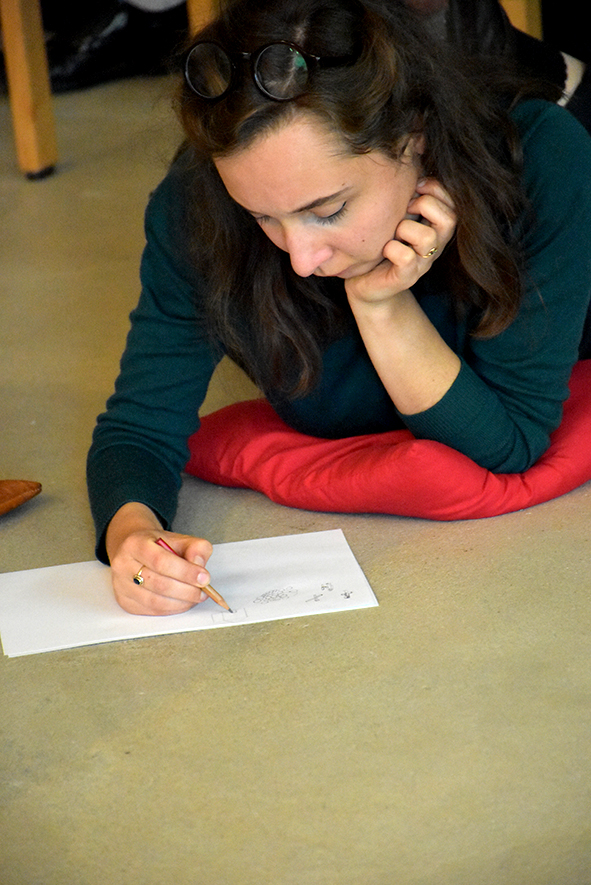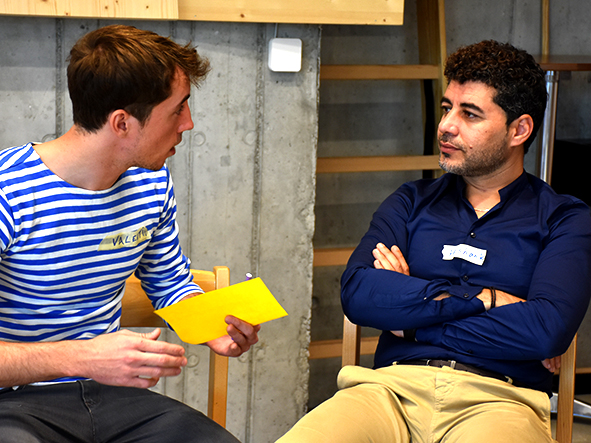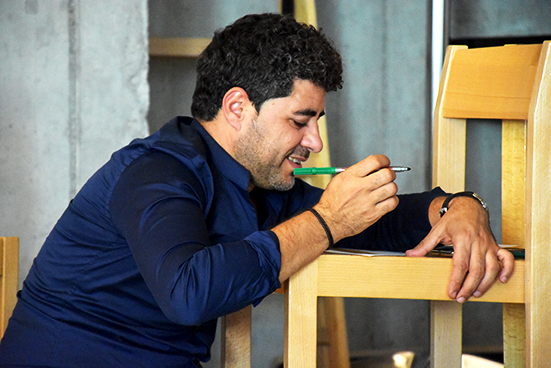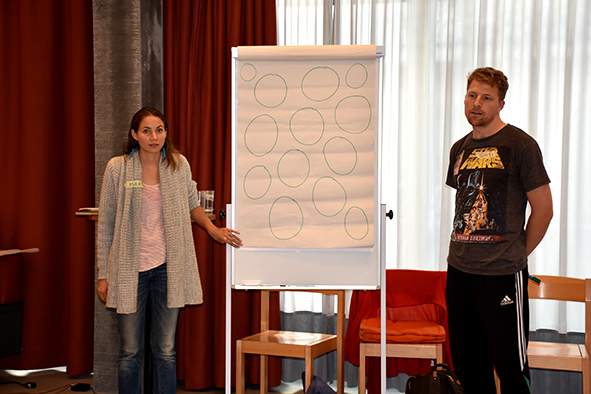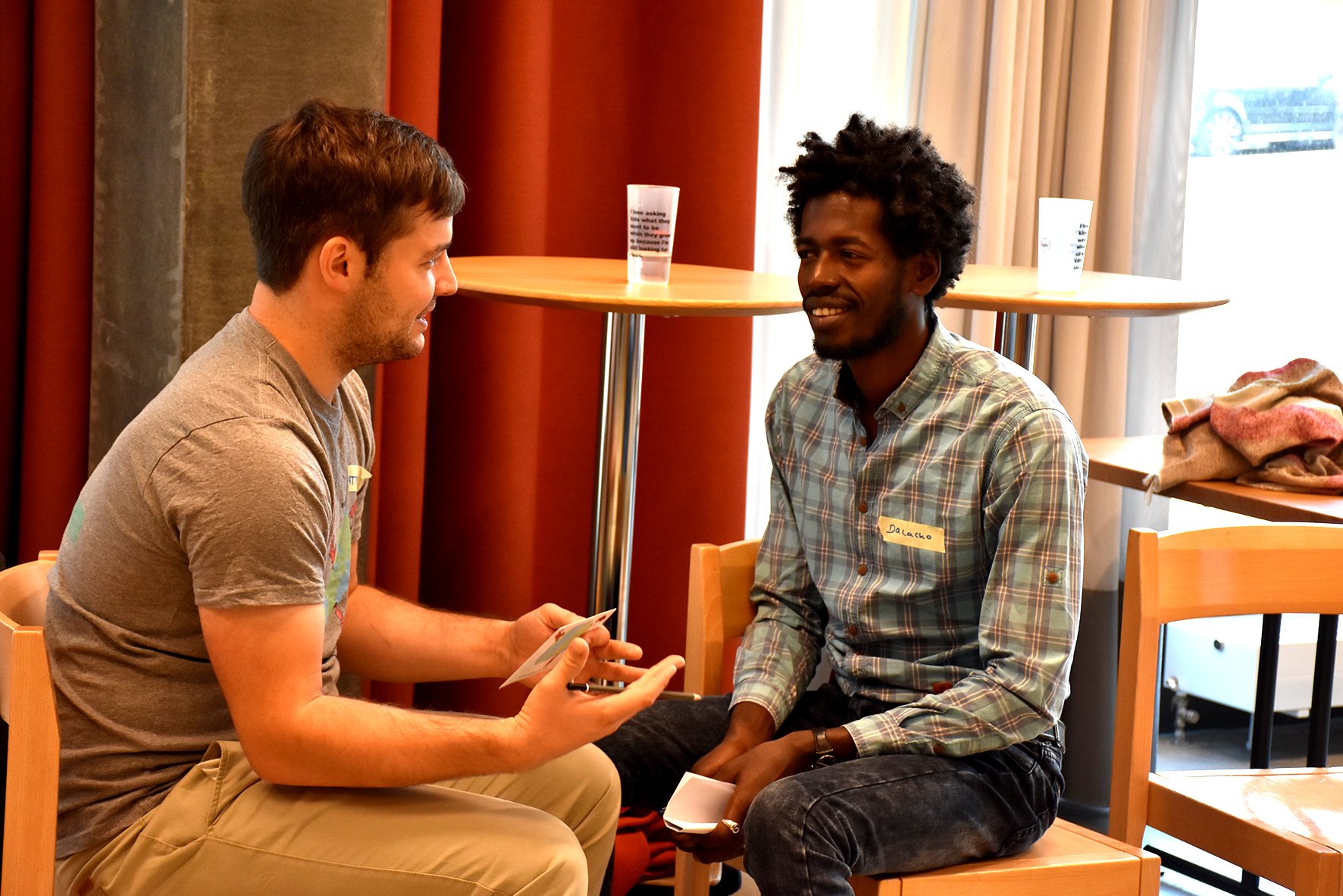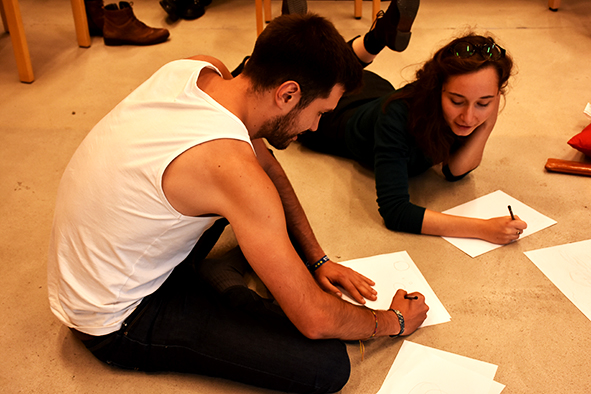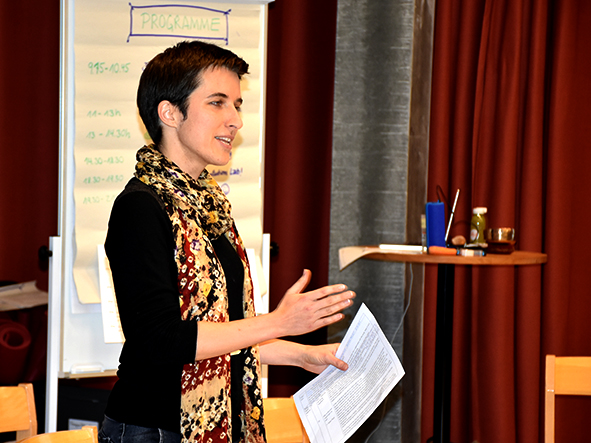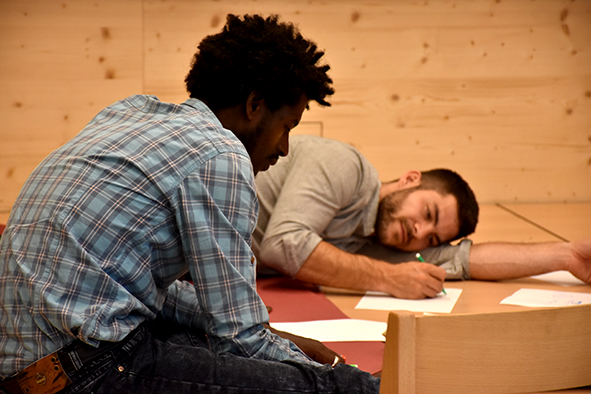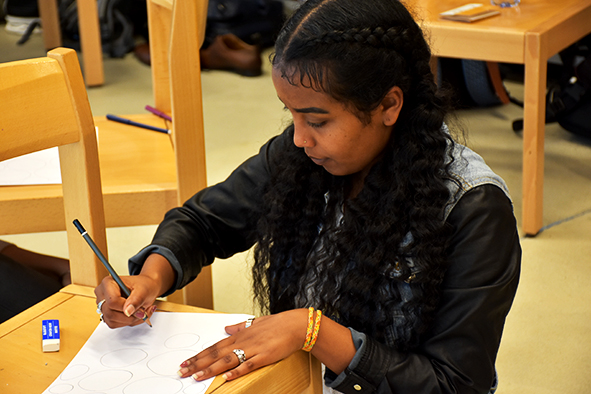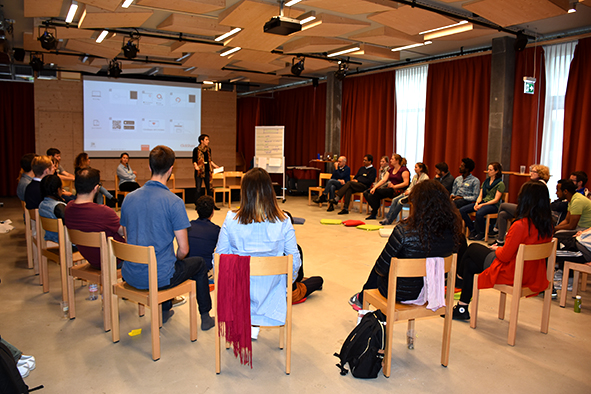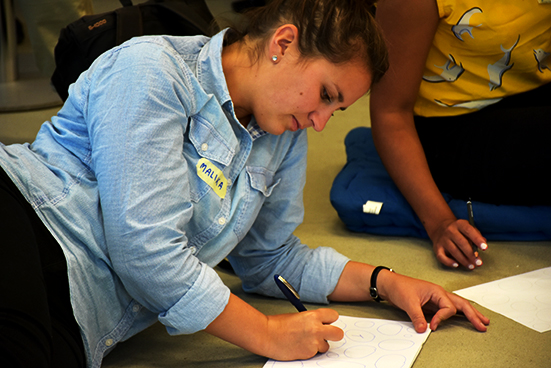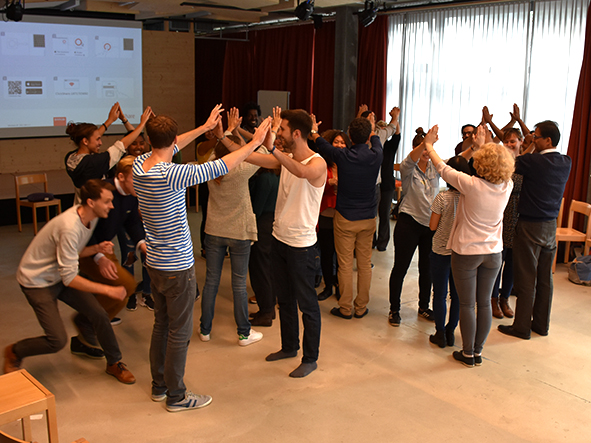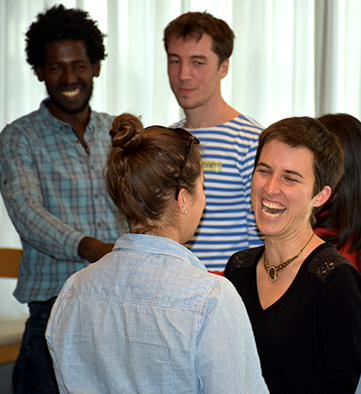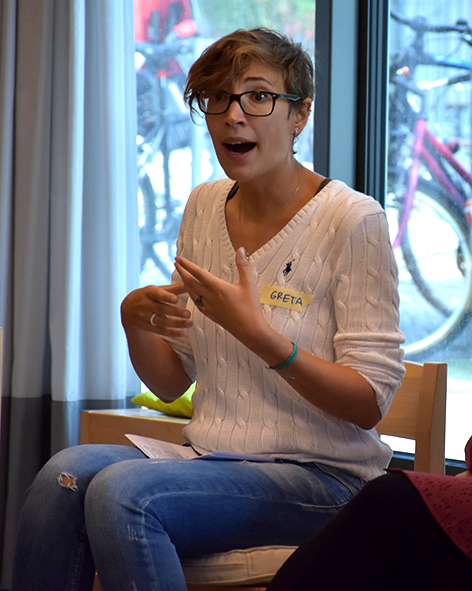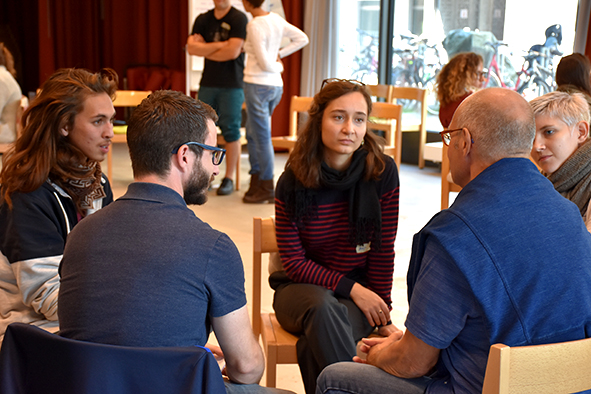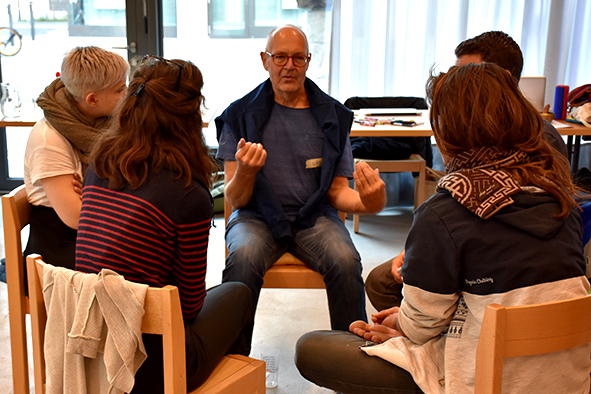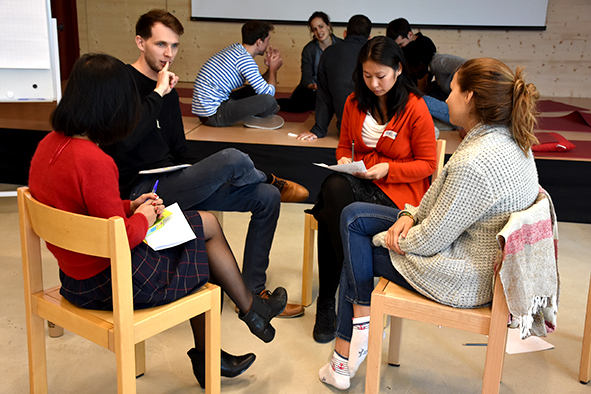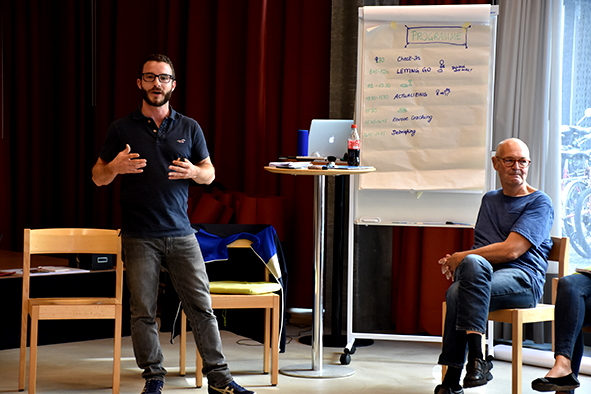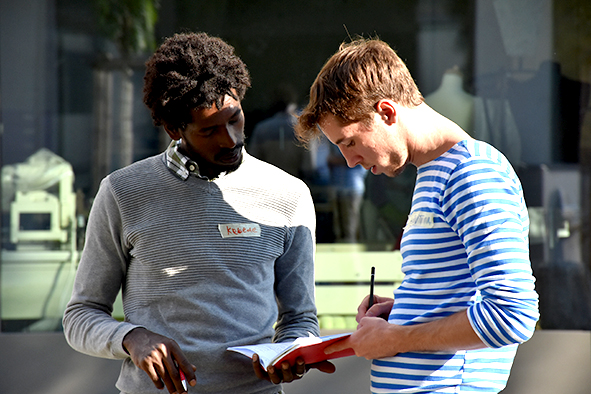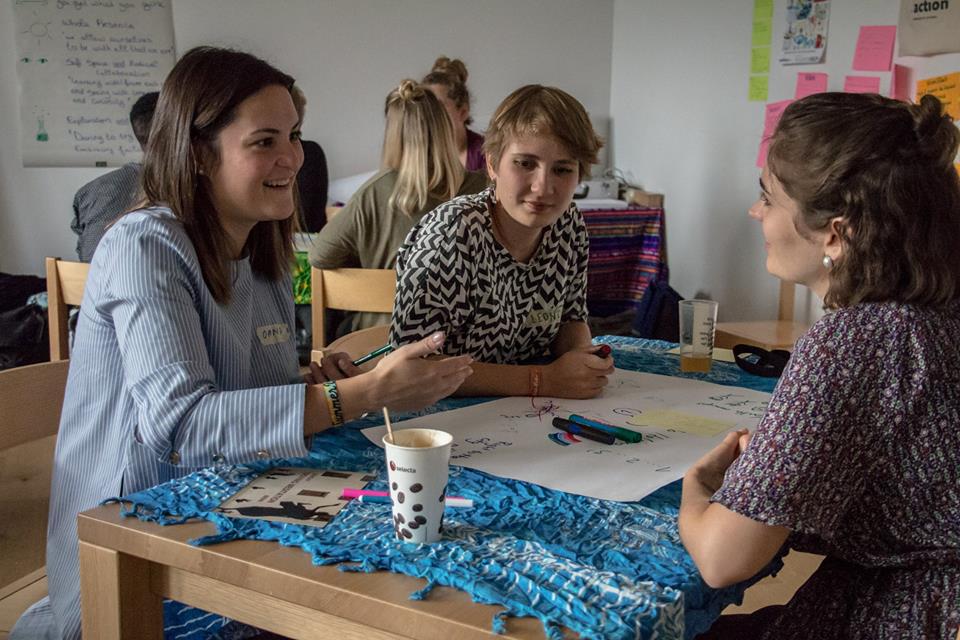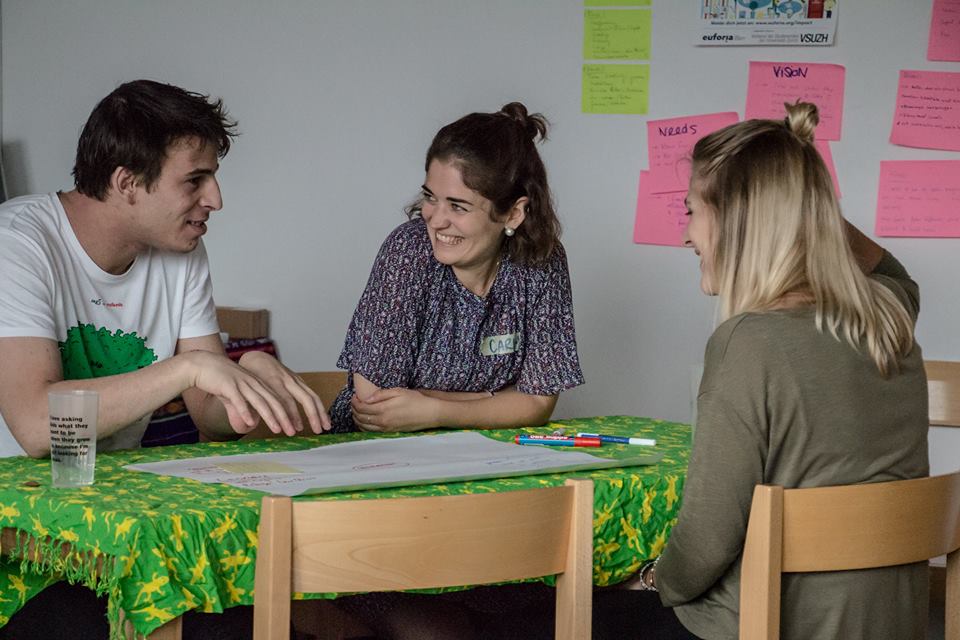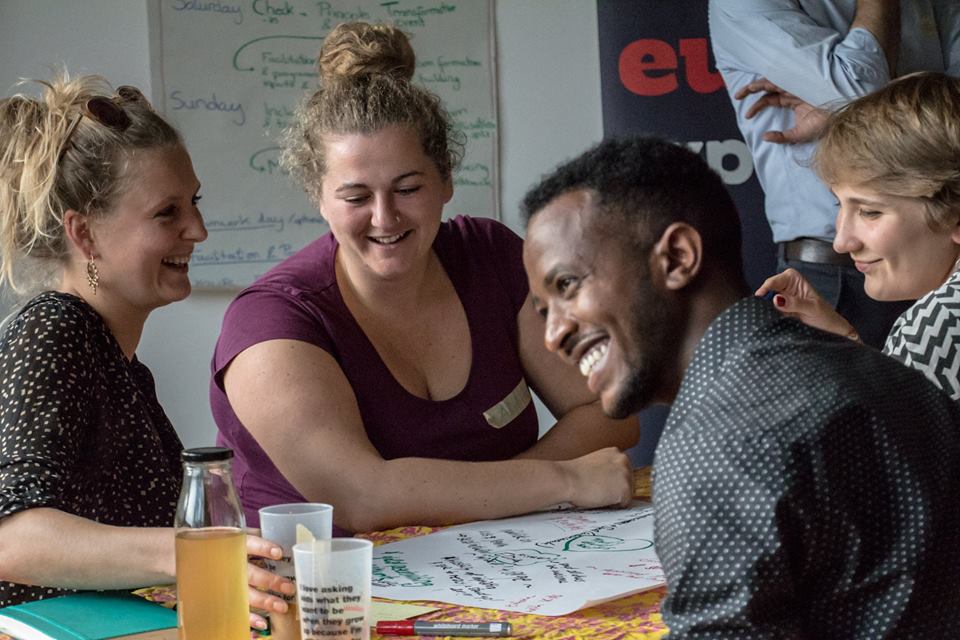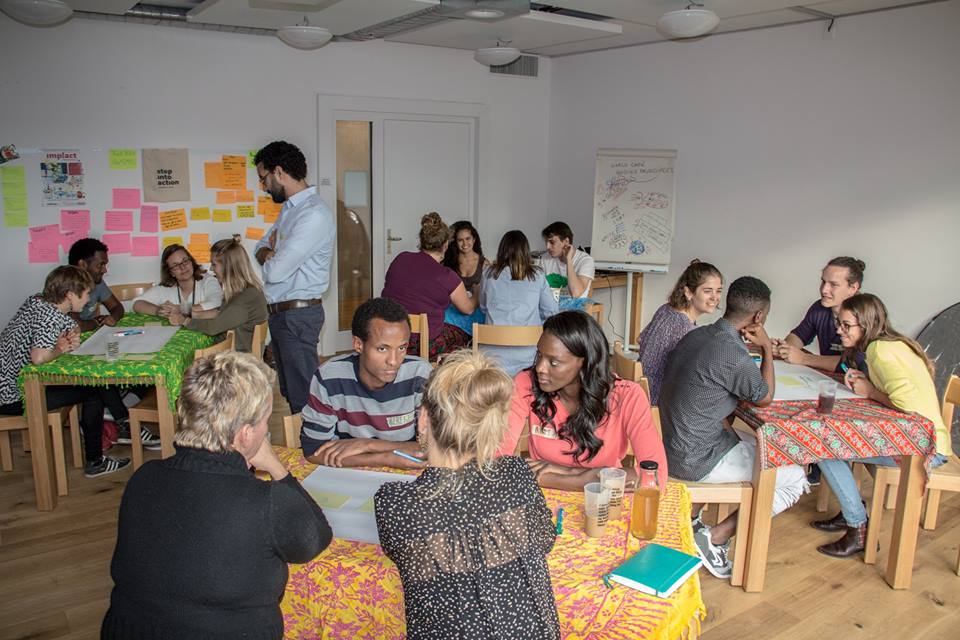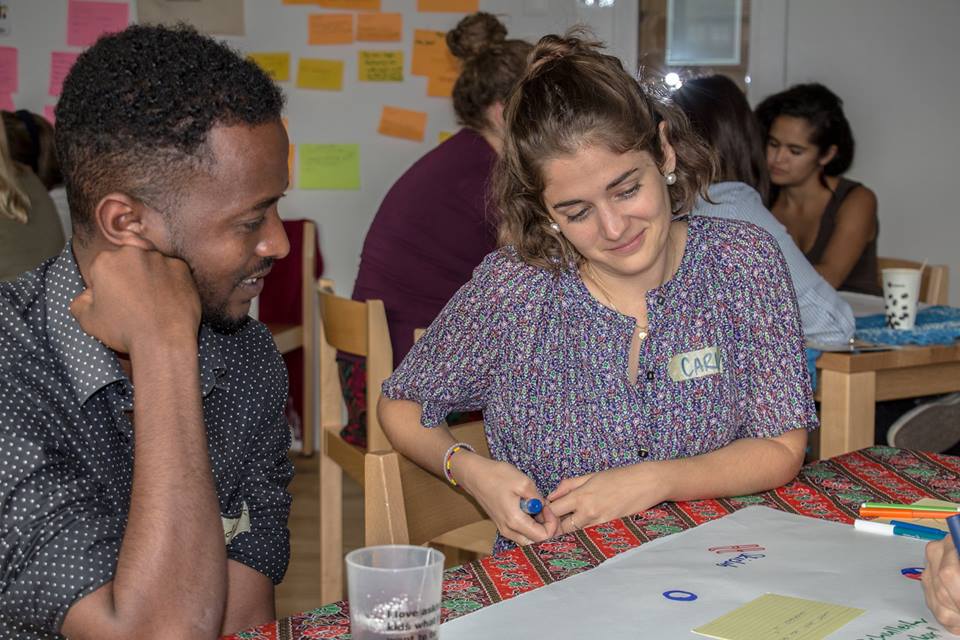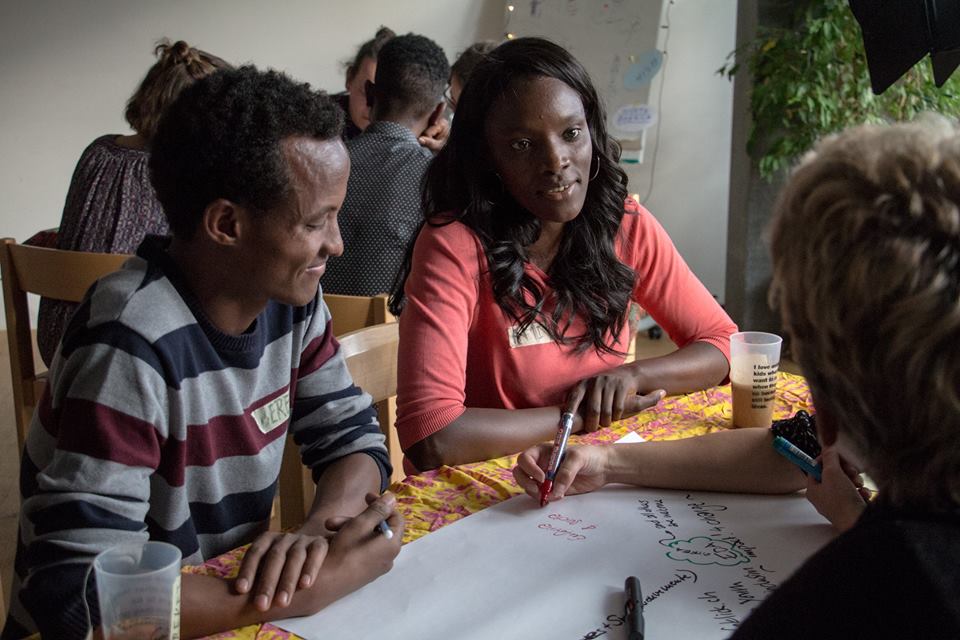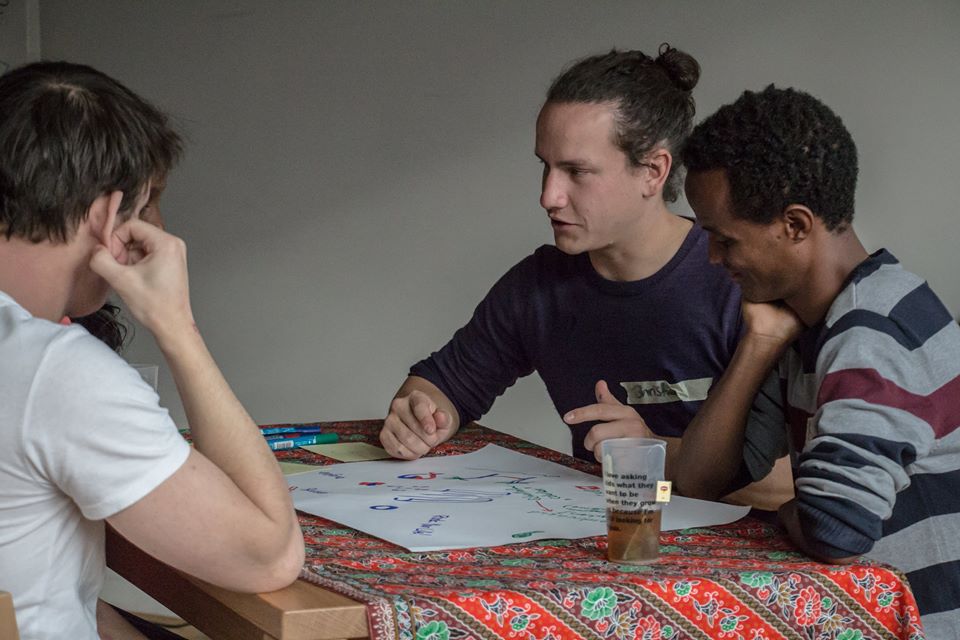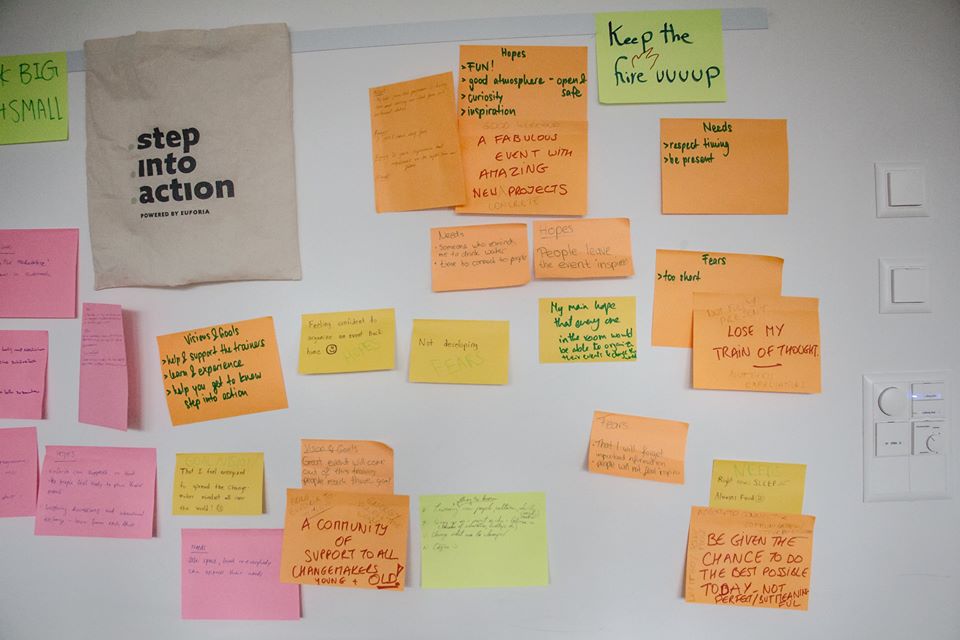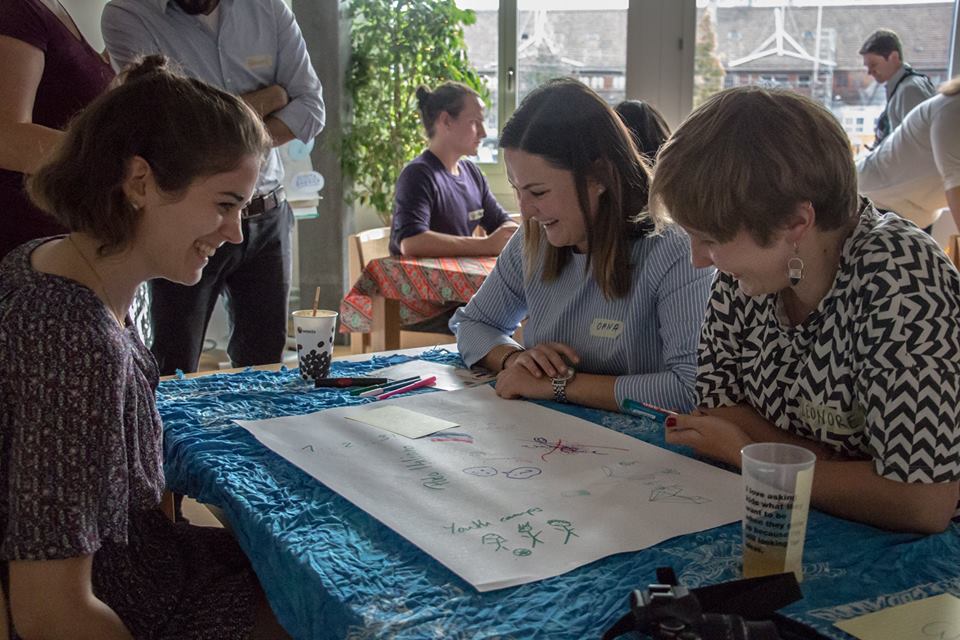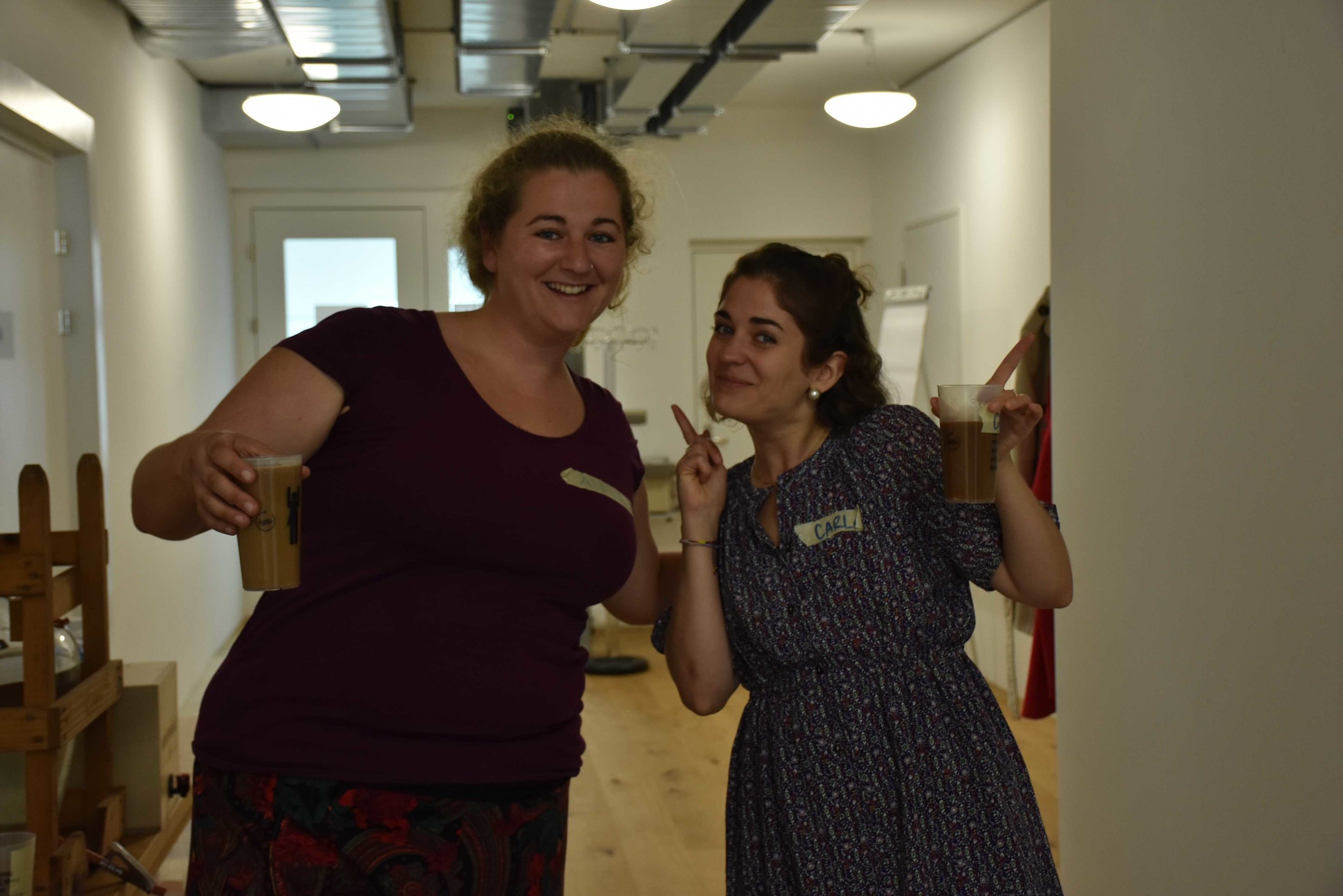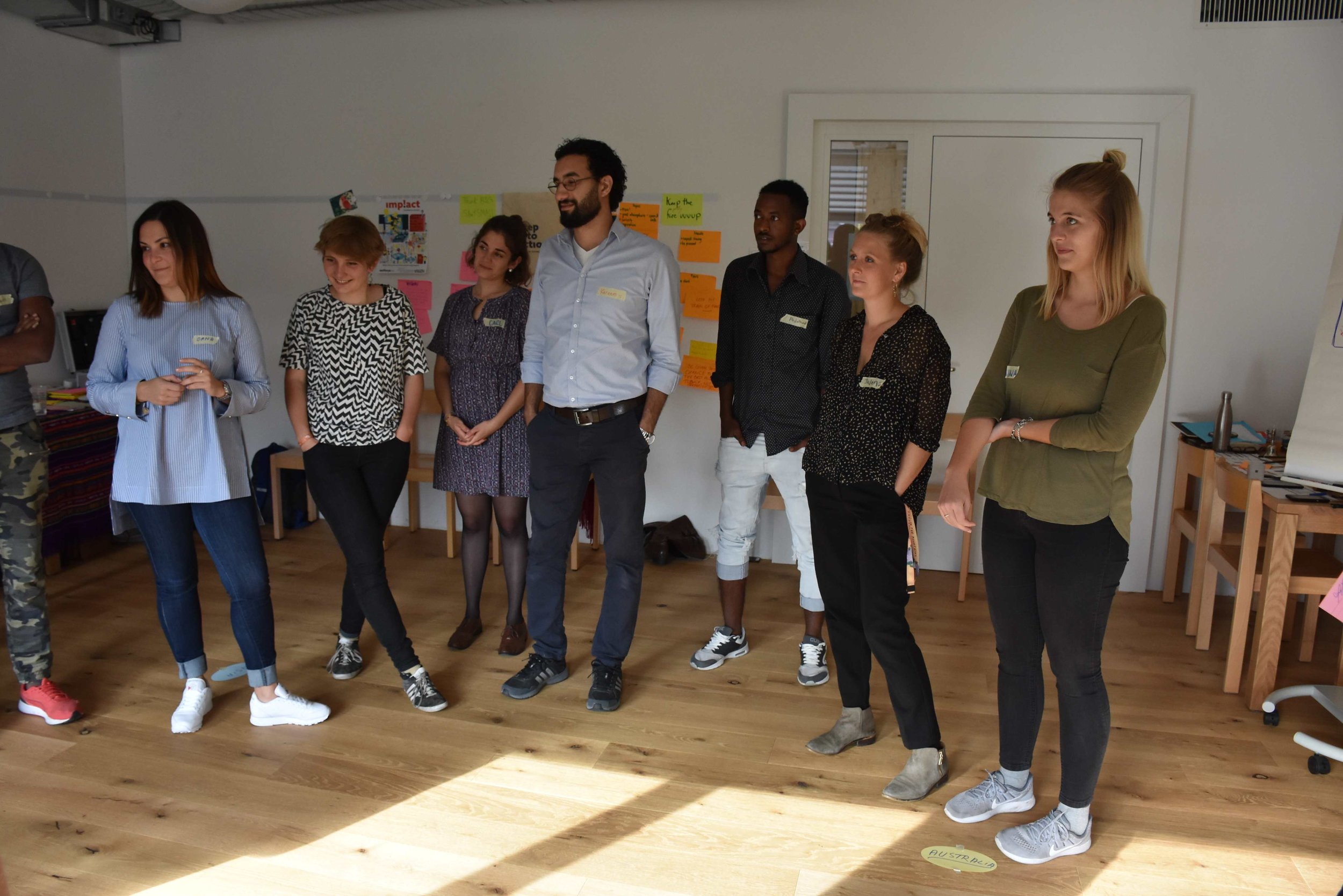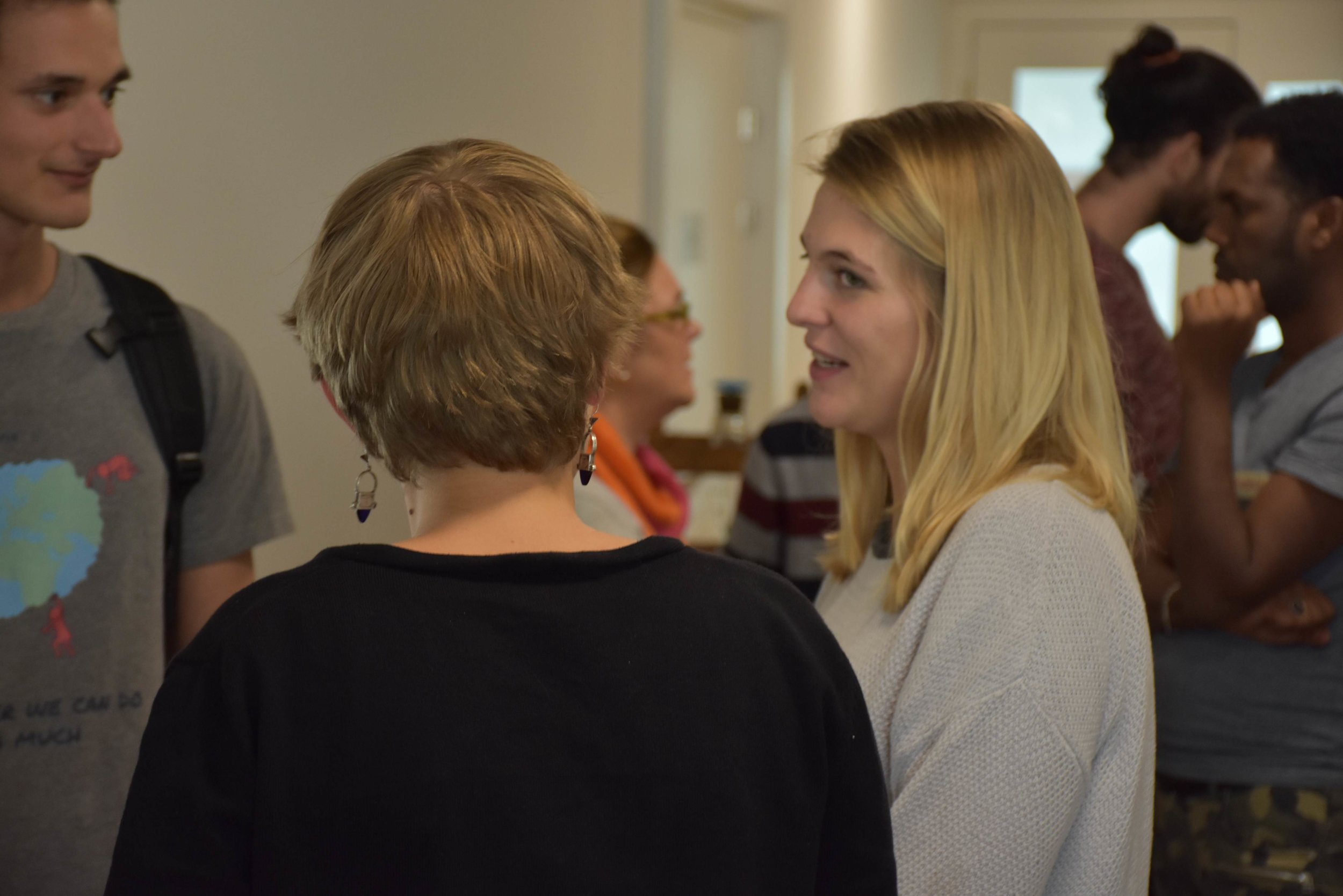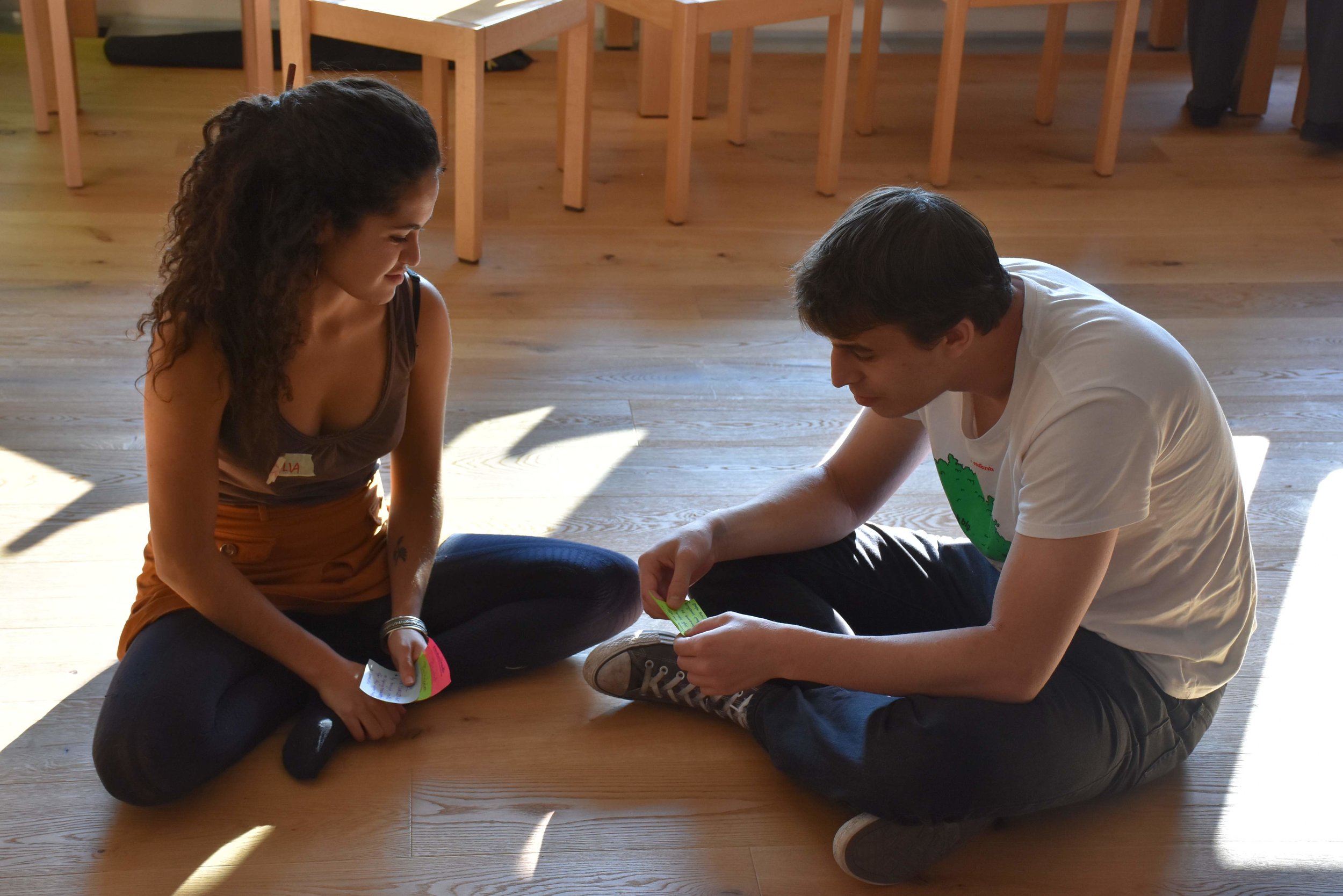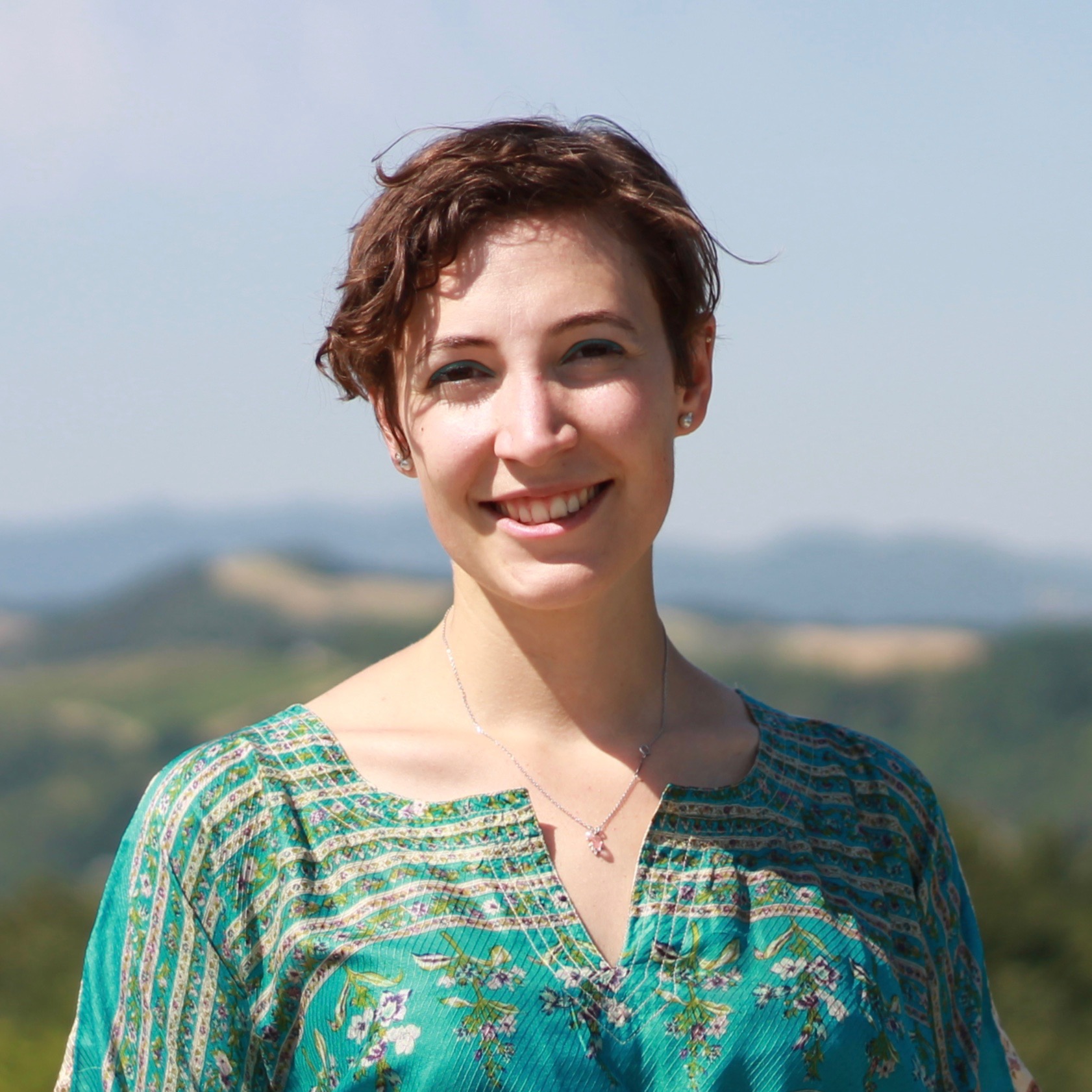The first weekend of the 2017/18 cycle of the unleash project has successfully happened! Over 30 people explored together attitudes, skills and knowledge to unleash potential for wellbeing and impact at the personal level. Different experts shared their knowledge in four workshops:
Presence and Self-Connection - your body as a compass (Johanna Risse)
Johanna showed us how to sort out the different feelings we have and to embrace them no matter if they're good or bad. She tought us how to connect with our body through listening, breating, moving and making sounds. We explored how our body reacts when different thoughts and emotions come up and how we can embody them but also shake them off and let go. We played with different kinds of music and movements and practiced to be fully present and to use our body as an inner compass.
Personal vision – Exploring drawing as a tool (Simon Kiener and Marietta Scheurmann)
Simon started with a personal story: a person with two faces of life, one of them looks silent on the desk and the other is like a wolf in the mountain, who lives far from a village, alone, dangerous but very curious about the village. The story showed a simple black and white picture, but it helped us to imagine colorfully about the two faces of the same person. It, therefore, shows us that painting is a great way to grow our imagination. It is only us who can color by ourselves our own story, in our own color. We drew your personal story and then shared with a partner. The task was to tell our partner (and vice-versa) what we saw in his or her picture. Only one picture (some time with some cycles and square) but they can speak 10' or even more about what they saw magically. Finally, some of the participants confessed that they believe they are able to draw (what they hadn't thought before).
In the second part, we split our life into three steps: Our birth, We in the present moment, we as 80 years old. We reflected about questions such as "What is your "hero genie" story?" "What are you doing now?" "Who are the people accompanying you on your 80 birthday party?" All of the life path makes us realize deeply about what the important thing of our life if and that we may not pay attention to reflect on the different perspectives of our life path.
Overcoming: Befriending your inner critic (Greta Rossi)
Most of us have experienced this sensation of a voice at the back of our awareness that tells us that we are not qualified enough for that job, that we do not deserve the love of our partner, that we are not beautiful enough, smart enough, courageous enough. Sometimes we can control these thoughts, but other times they seem to overwhelm us and dictate our reactions. That voice is the voice of our inner critic; we all have one – it is part of the human experience. With Greta we explored this inner critic:
- When did it first appear
- Are we aware of it?
- What is our relationship with it and how do we deal when it appears?
We reflected deeply on our self-limiting beliefs and habitual thoughts to maintain a healthy relationship with their inner critic, an essential element to wellbeing. For the practice experience, we were in the safe space with another participant to share our own inner critic in a humoros way which allows for transformative and healing experiences to take place.
Actualizing - Tools for self-management and effectiveness (Urs Scheffer and Jan Mezger)
With Urs and Jan we collectively explored tools to achieve our visions and goals. Firstly and most importantly, they showed the example of several famous entrepreneurs and companies, like Steve Jobs. They shared how the attitude of the individual is what makes the biggest difference when it comes to just having great ideas vs. bringing them into life. Among those were "Keep it sexy and simple", "Just do it" and "Think broader".
Urs and Jan suggested to start reflecting on "What kind of attitude would help me for my current vision/objective to move into doing?" After a break-out reflection session, we shared the attitudes we discovered we need in order to move from vision to doing:
- Don't stay in your head - get down to your desk and visualize and plan how your idea will actually look in real life!
- Don't keep it to yourself - get out there and start talking about the idea, and you might get some allies and get into collective prototyping!
- Quick prototyping and feedback – don't make it complicated. Think how to try out your idea or vision in a simple step, get feedback and then adapt.
After focusing on the attitudes, we collectively shared practical tools to start bringing our ideas and visions into life, among others objective journals, to-do boards, action formulation, motivation boosters and snoozer tools.
Action Learning and Reverse Coaching Session
We finished the weekend with a reverse coaching session where participants prepared in pairs how to apply the learnings in their «real life».
We want to say thank you to our amazing host team, to all the facilitators and especially the participants who co-shaped this weekend with us.
The next weekends will take place:
> in Bern from November 3-4 (Team Level)
> in Romandie from February 2-3 (Institutional Level)
> in Romandie from April 6-7 (Societal Level)
Participation is also possible if you couldn’t make it to the first weekend! Interested? Get more infos here.
